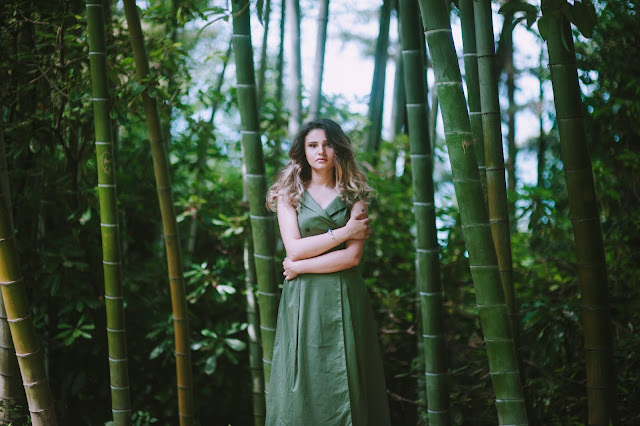There has been a growing awareness of the environmental impact of clothing choices in the last decade. From fast fashion to textile waste, consumers are increasingly seeking sustainable alternatives. One such alternative gaining traction is bamboo fabric as a versatile and eco-friendly material for textiles, particularly in blankets and clothing. Bamboo fabric is considered a sustainable choice for the conscientious consumer, and it could be the ideal fabric used by manufacturers in the future. Whether it’s bamboo blankets or bamboo clothing, the fabric could replace cotton.
Bamboo Grows Quickly Without Fuss
Bamboo is a fast-growing grass native to many parts of the world. It possesses remarkable properties that make it an ideal candidate for textile production. Unlike cotton, which requires vast amounts of water and pesticides to cultivate, bamboo grows rapidly with minimal water and no pesticides. This makes bamboo cultivation far less resource-intensive and reduces the environmental footprint associated with traditional cotton farming.
Bamboo plants proliferate quickly and can be harvested annually without the need for replanting. This regenerative quality makes bamboo a renewable resource that can be cultivated without depleting the soil or harming ecosystems.
Is Bamboo as Good as Cotton?
What sets bamboo fabric apart in the realm of textiles? The answer lies in its unique characteristics. Bamboo fabric is exceptionally soft and smooth, with a luxurious feel that rivals silk. Its natural moisture-wicking properties make it highly breathable and comfortable, making it an excellent choice for blankets and clothing, especially in warm climates or for those prone to sweating.
Furthermore, bamboo fabric is hypoallergenic and naturally antimicrobial, thanks to bamboo's inherent antibacterial properties. This makes it an ideal option for sensitive skin or individuals prone to allergies. Unlike synthetic fabrics, which can trap odour-causing bacteria, bamboo fabric remains fresh and odour-free even after prolonged wear.
A Biodegradable Fabric
In addition to its comfort and health benefits, bamboo fabric is also biodegradable, unlike many synthetic textiles that contribute to the growing problem of textile waste. When disposed of, bamboo fabric decomposes naturally, returning to the earth without leaving behind harmful residues or microplastics.
Sustainable Production Methods
The production process of bamboo fabric further enhances its sustainability credentials. Unlike conventional cotton processing, which involves harsh chemicals and consumes significant energy, bamboo fabric can be produced using eco-friendly methods. The most common method, known as the mechanical or "retting" process, involves crushing the bamboo plant to extract its fibres, which are then spun into yarn. This mechanical process eliminates the need for toxic chemicals and reduces energy consumption, resulting in a more environmentally friendly end product.
Bamboo fabric production boasts impressive water efficiency compared to traditional textile manufacturing. Bamboo requires minimal irrigation to grow, and the retting process consumes far less water than the water-intensive processes used in cotton production. As freshwater resources become increasingly scarce, the water-saving benefits of bamboo fabric production are particularly significant.
What are the Challenges of Bamboo Fabric?
Despite its many virtues, bamboo fabric is not without its challenges. Critics point to the chemical processing methods sometimes used to produce certain types of bamboo fabric, such as bamboo rayon or viscose. While these processes can be less eco-friendly than mechanical methods, responsible manufacturers are increasingly adopting closed-loop systems and eco-certifications to minimize environmental impact.
Concerns have been raised about the environmental and social implications of bamboo cultivation, particularly in regions where it is grown on a large scale. Clearing land for bamboo plantations can have adverse effects on local ecosystems and biodiversity if not managed sustainably. Additionally, there are concerns about the working conditions and fair labour practices in some bamboo-producing regions. As with any industry, transparency and ethical sourcing are essential considerations for consumers seeking truly sustainable products.
Bamboo fabric offers a compelling alternative to traditional textiles for blankets and clothing, with its softness, breathability, and sustainability credentials making it an increasingly popular choice among eco-conscious consumers. While challenges remain in terms of production methods and sourcing practices, the potential for bamboo fabric to reduce the environmental impact of the textile industry is significant. By supporting responsible manufacturers and choosing bamboo products, consumers can play a part in promoting a more sustainable and ethical approach to fashion and textiles. As we continue to seek alternatives to conventional materials, bamboo stands out as a shining example of nature's bounty harnessed in harmony with the planet.





